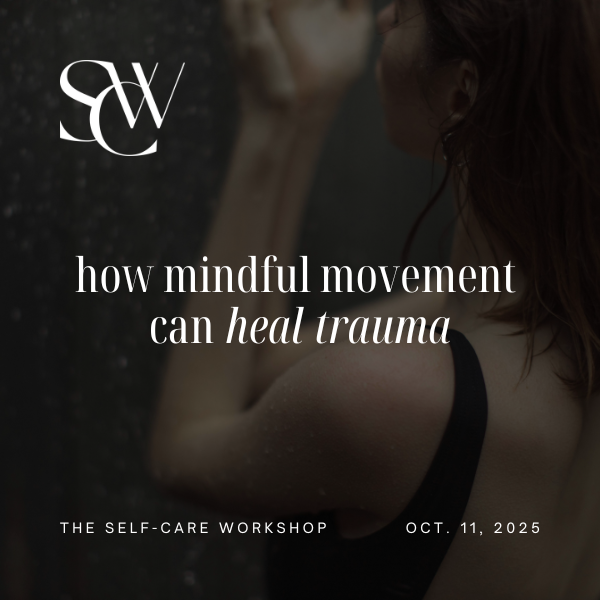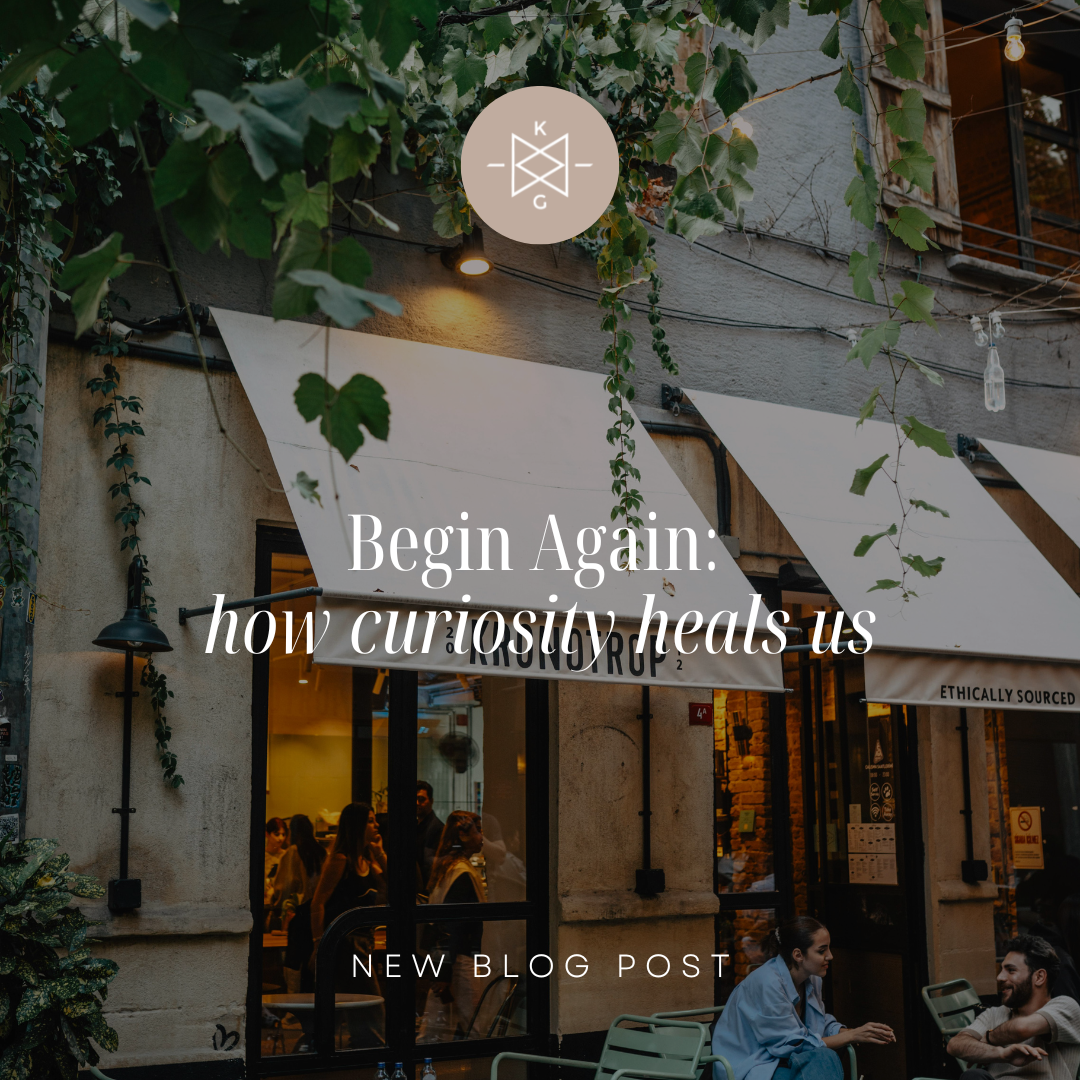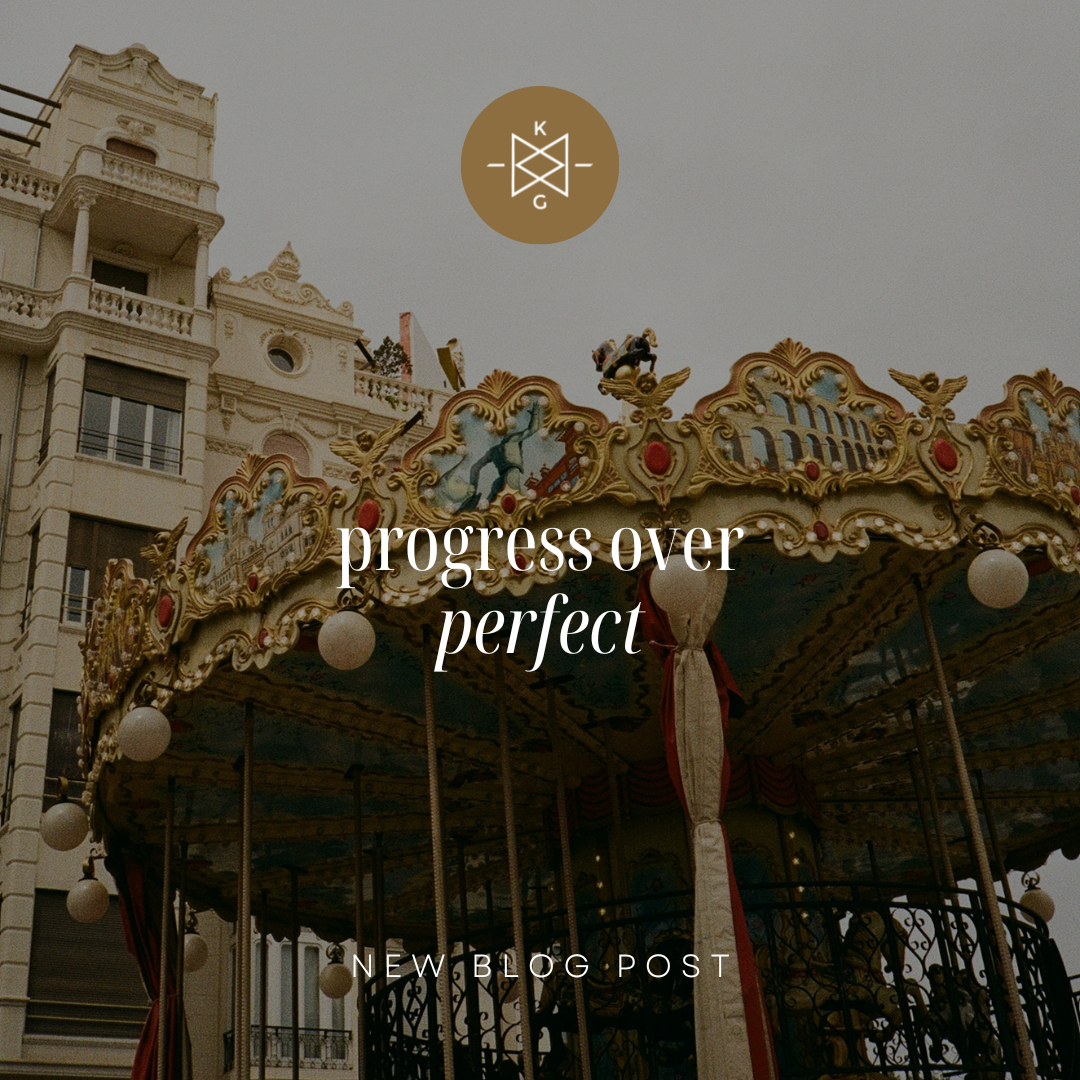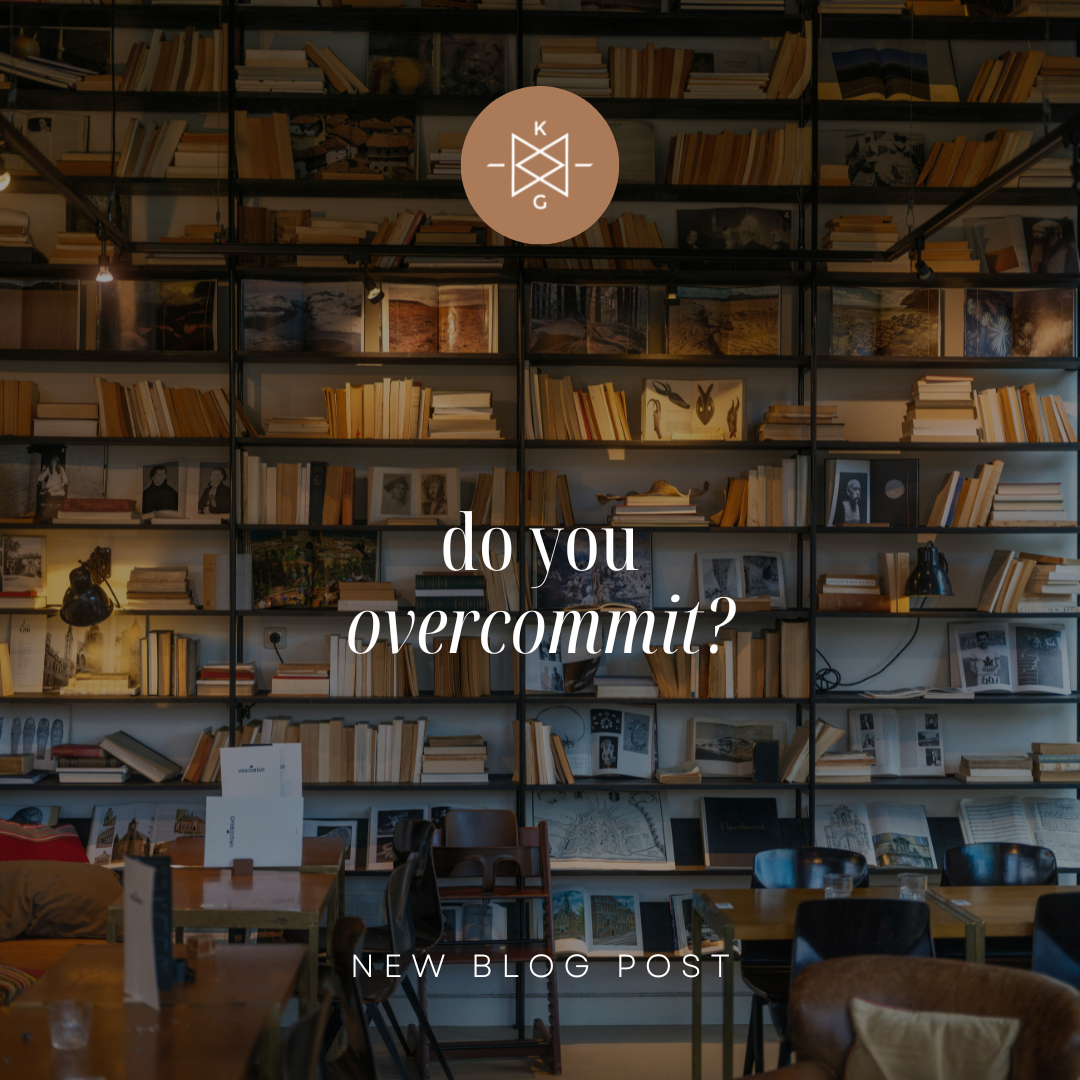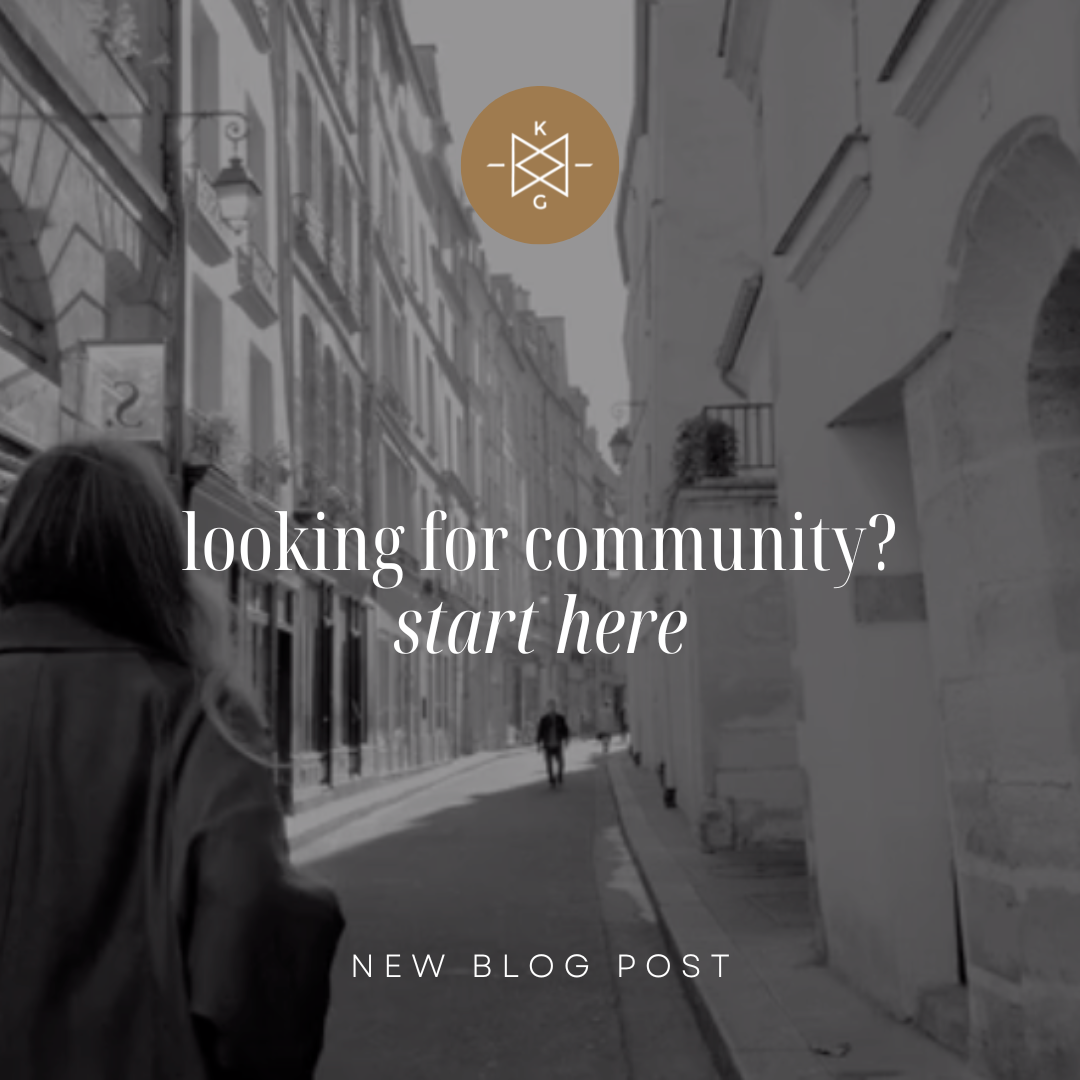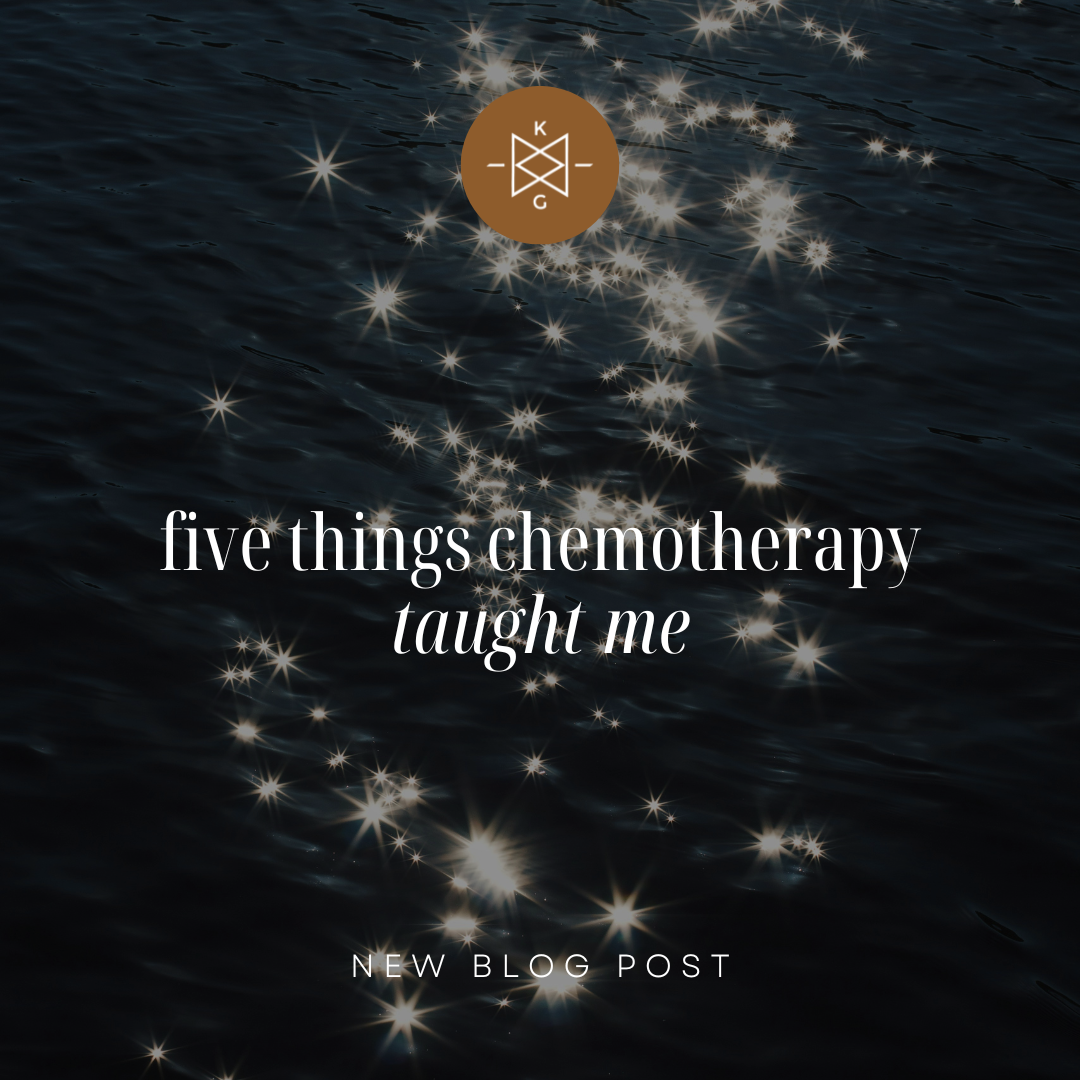
The Blog
Recently Featured
All Blogs
How's Your Relationship with Food?
“I would maintain that thanks are the highest form of thought, and that gratitude is happiness doubled by wondered.”
-GK CHESTERTON
I’m pretty sure I say this every year, and here goes again: I can’t believe the holidays are upon us. Though they may differ depending on your traditions, one thing remains: food tends to be the main event.
Especially this last week—Thanksgiving—the heightened emphasis on that decadent meal with butter dripping from every possible opportunity leaves so many people feeling anxious due to complicated relationships with food and body image. I know this struggle all too well as someone who suffered a deadly eating disorder in high school. I’ve worked hard to maintain a healthy relationship with food bolstered by a more gentle and balanced approach. Though I feel a million times better today and don’t struggle in the way I did, I have a very special place in my heart for those who suffer from this ongoing battle with themselves and food.
In fact, most women struggle at some point in their lives with a disordered relationship with food. An estimated 30 million people, men and women alike, suffer from actual eating disorders throughout the course of their lifetime. Ya’ll, that’s wild. And incredibly sad.
I highly encourage you to seek professional treatment both with a therapist and physician if you are struggling. I also want to share with you a few ideas on how to approach the next month and a half with more grace and enjoyment.
Mindful eating
I’m a big believer that it’s not the actual food that creates the problems, it’s our relationship with food. So many of us, myself included, use food as a medicator, to numb and relieve temporary emotional pain. That, or we use it to celebrate good news or important events. So often, this is an unconscious process—one we don’t even realize is happening. It’s automatic, habitual, and ingrained. Simply becoming more aware of what you are eating, when you are eating, and why you are eating is incredibly supportive in a more mindful relationship with food. I like to call this mindful eating. It doesn’t mean deprivation either! It simply means slowing down enough to eat with intention and awareness. It’s proven that as we slow down our actual eating time, we can connect to our bodies more, identifying when we are initially full.
Exercise
Daily movement has been my physical and emotional tether for decades. It’s our primal right as humans. With travel, it can be tricky though. Let’s be honest, we will likely be indulging a bit more in the coming weeks, so this is the perfect opportunity to balance it out with mindful movement—wherever we can get it! A brisk walk, a streaming yoga class on your laptop, a snowball fight if you don’t live in the south. ;) As emotions also run high, physical exercise is an incredible natural anti-anxiety/anti-depressant. Give yourself the gift of intentional exercise these upcoming weeks—it’s always a good idea!
Healthy-ish
You’ve heard about the 80/20 rule, eating healthy 80% of the time and indulging 20% of the time. I try to follow this as closely as possible. However, as I mentioned earlier, the holidays are a time for celebration and merry-making. So you may need to extend a bit of leeway in the direction of a 70/30 rule. Eating healthy 70% and indulging more like 30%. The goal is to eradicate shame when we eat a bit more than we’d like or even gain a few pounds. No one ever improved their relationship with food from a baseline of shame. And that’s what we’re going for—practicing a better relationship with food rather than putting unnecessary pressure on a strict diet.
Let’s aim to enjoy food from a place of gratitude and abundance rather than fear and scarcity. Let’s…savor.
Your Secret to Self-Care During the Holidays
“Where we think we need more self-discipline, we usually need more self-love.”
-Tara Mohr
Self-care during the holidays may seem a bit out of reach. With kids home, wonky work schedules, the swirl of celebration, and the limited time we all face, your only option may be to let it slide and just call it a day…or year.
As tempting as that may seem, I want to suggest there’s another way. Self-care looks different from season to season. And yet, I firmly believe that the less time, energy, and resources we have, the more important self-care becomes. It will likely be what allows us all to finish strong and have grace and compassion for ourselves and others along the way.
This might sound a bit dramatic due to confusion around what true self-care really is. With that said, I’d like to share my thoughts on self-care and how we can create space for it amidst the chaos of the season.
Unfortunately, society has taught us a version of self-care that falls drastically short in terms of actually promoting deep restoration. It makes sense to me that many of us have lost hope in it or see it as indulgent and even selfish. Spa treatments, retail therapy, and wine nights to take the edge off might appear to work temporarily, however they fail to support our process in any lasting change. They can also get really expensive! Don’t get me wrong, I’m a huge proponent for pampering and celebrating, yet we need to be clear about the fact that these are not the same as self-care.
So if these self-care imposters temporarily boost our spirits (or appearances) yet leave us feeling just as empty as before, don’t you think it’s time we take a deeper look at what real self-care looks like?
Life continues to present us with challenges, especially throughout the holidays as expectations run high and certainty—low. We need a brand of self-care that will help us stay present as opposed to escaping our lives—one that will connect us to more compassion, energy, perspective, balance and grace in order to move through the tough times and even thrive amidst the chaos.
I belief self-care is a process of befriending yourself. Much like self-compassion, it’s showing yourself the heartfelt care and support you’d show a loved one in need. It’s learning to speak to yourself with a softer tone. It’s developing practices that promote connection rather than isolation.
If self-care starts with befriending yourself—speaking kindly to yourself—and grows from there to a practice of bringing balance and restoration—mind, body, and spirit, I’ve got great news:
The initial work of self-care then becomes what I like to call “kind conversations.” It’s speaking to yourself with a gentle tone instead of a harsh one. It’s telling yourself those things you need to hear and becoming more and more aware of the automatic dialog happening in your head. It’s starving out the inner critic that keeps us stuck in scarcity.
If you aren’t quite sure what you need to hear, I’ve got some ideas…nine specifically. They align with your Enneagram type.
Type 1: You are a good person of high integrity! You’re doing such a great job.
Type 2: You are loved and chosen just for who you are. Your needs matter.
Type 3: You are loved and valuable just for being you. There’s nothing you could do to change that.
Type 4: You are seen and known for who you are. You are special.
Type 5: You have so much knowledge and insight to offer the world. It is safe to move toward connection and comfort.
Type 6: You are safe and secure. You can trust yourself.
Type 7: You are taken care of. The present moment is a safe place for you to be.
Type 8: You don’t have to be so strong. You can relax into the moment.
Type 9: Your presence matters in this world. Your voice needs to be heard!
Take these type specific messages and build out some kind conversations from there.
So my Dear, next time you make up a story in your head that there’s simply no time for self-care, remember that self-care isn’t about taking time out, it’s taking time back. Kind conversations will only build a strong self-care foundation and make your time this holiday more special…and sweet.
What are you afraid of?
“…But trailing clouds of Glory do we come
From God who is our home:
Heaven lies about us in our infancy…”
-William Wordsworth
In honor of Halloween, I thought we might as well dig into the things that really scare us in our unique enneagram type. Yep, that’s a thing.
Interestingly, we come into this world with open, vulnerable, innocent, curious souls. We come full of goodness, devoid of shame. Ah but it doesn’t take long to discover this world and its inhabitants are highly imperfect. We quickly learn in our early years that we are not entirely safe and must act to self-protect and get our needs, basic and developmental, met by the important people around us. The “glory” starts to dim. This is part of the making of our little personalities. And they’re brilliant! Yet not ultimately helpful in adulthood.
And here’s the kicker: these patterns of strategy or personality are built around fear born out of specific childhood wounds. We all have them. Some are more benign than others, oh but it’s there alright.
The Enneagram teaches there are nine core patterns of personality in the world (27 if you count subtypes!). You and I gravitated towards one in particular in early childhood based on the landscape of our early life experiences. These personalities are incredibly helpful for sniffing out and avoiding anything that may remotely remind us of our childhood wounding. After all, human beings are wired for survival, and our neurobiology and personality patterns are the most effective ways to do just that and stay safe.
Today, I wanted to give you a basic understanding of each Enneagram type’s core fear. If you are unsure of your type, these will also bring more clarity to you as you identify with your unique experience of fear throughout the years.
Let’s dive in.
Type Ones fear being bad, corrupt, and ultimately unworthy. Often, you hear type ones describe a difficult experience where they were publicly embarrassed, called out, or humiliated. As Improvers, they learned early on how good it felt to do the right thing and behave according to the rules. As a result, they have unrealistically high expectations of themselves and others and often feel trapped by their loud inner critic and perfectionistic tendencies.
Type Twos fear being unlovable. Early on, they had a love need that didn’t get met, and they spend their time and energy ensuring connection with others in relationships, often engineered by giving and helping. As a result, they live their lives asleep to their own needs and desires and often only know themselves in relation to other people.
Type Threes fear failure and being without value. As a result, they are driven to success at all costs. Early on, they garnered love and acceptance through their impressive achievements which gave them their sense of worth and value. They learned to turn off their emotions and disconnect from their true selves in order to get the job done and look good doing it, often becoming deceitful to self and others.
Type Fours fear being deficient and ultimately rejected or abandoned. Many fours describe an early actual or perceived experience of loss of love—and as a result—abandonment or deprivation. The story they make up in their head is that somehow they caused this. So they spend a great deal of time and energy focusing on how to somehow reverse this with the ideal relationship or situation. This normally always involves being seen as special and unique. In the process, they can become self-absorbed, hot-and-cold, and chronically melancholic.
Type Fives fear being useless, incompetent, and helpless. Their early experience often involves being neglected or engulfed by caregivers whom they needed in order to survive. They were somehow unaware and unresponsive of their needs which forced little fives to go inward, detach, and hold onto the little they had. Their survival came from their ability to acquire knowledge and understanding as well as their self-sufficiency. In the process they became emotionally and physically cut-off from the world and often stingy, both emotionally and practically.
Type Sixes fear being without support and guidance. As little people, they often describe being in threatening ongoing situations and as a result, they developed a belief that the world was a dangerous place. The prototypical “fear” type, sixes focus their time and energy on safety and security as well as feeling supported. As excellent problem solvers, sixes can often become real problem seekers and worst-case scenario thinkers.
Type Sevens fear being trapped or in pain. Young sevens often describe a difficult relationship with one parental figure (often maternal) that was overbearing, stern, and dominant. (Can also work the other way with the paternal caregiver.) Based on this early experience, they believe that authority equals limitation, and much like eights, despise being told what to do. As a result, they like to keep things open and exciting with lots of options. In the process, they can become scattered, disconnected from reality, and unable to integrate the normal pain of life into their experience.
Type Eights fear being weak or controlled by others. Many eights describe a combative or conflict ridden early childhood where they had to grow up fast in order to survive. They had to disconnect from their childlike innocence because of a lack of protection of some type of deprivation. As a result, eights avoid weakness and being controlled by others at all cost and can be experienced as dominating, excessive, and overly impactful.
Type Nines fear loss or disconnection. They often describe an early experience where their opinions didn’t matter or weren’t heard. Perhaps there were others who had louder voices or opinions, or they were overlooked somehow. So in order to feel calm and secure, they went along with what others wanted. Through this experience of being overlooked or overpowered, they become expert in accommodating the needs, desires, and agendas of others. As a result, much like two’s, they become overly dependent on others and feel that their presence in the world doesn’t matter.
Which type’s core fear speaks the loudest to you?
Five Things Chemo Taught Me
“…You’ll figure it out—all the little things seem so big now.
Don’t worry about all the little things—they only get bigger…
wish you could see me now.”
-Katie Gustafson’s “See Me Now”
I wrote a song back in 2016 called “See Me Now” which I now know to be prophetic in a way. It’s a “don’t sweat the small stuff” kind of vibe. Funny how life doesn’t necessarily get easier, but hopefully, we get sturdier and better equipped to handle it. This blog post sums up the life lessons that carried me through my cancer treatment and beyond.
My breast cancer diagnosis back in April of 2021 was an unexpected gift in many ways. Perhaps most glaring was that it forced me to take forensic inventory of my life—and how I’d been living it up until that point. It crystalized the things that were and are truly important. It invited me into more personal integrity—alignment with my deeply held values. It convinced me there that adulting really means we have more responsibility, more to live for, more to lose, and more to let go of when it ceases to serve us.
I’ll never forget the day after I my diagnosis. We attended a friends over-the-top gorgeous wedding outside of Nashville. I had no idea what the course of treatment would be at that time. All I held to that day was the certainty that my story had taken a dramatic shift to the tune of that terrifying “c” word.
I savored every single minute that day. I got to dress up (which is my spiritual gift), hugged and kissed my then 2-year-old when we dropped him off at my folks house on the way, sipped champagne, and held my husband’s hand tighter than I can ever remember. I even got to slow dance with him. As my cheek pressed up against his crisp suit jacket, I cried hot tears of joy, gratitude, and fear all at once. I’d been given another day and the days of taking this beautiful life for granted passed before me right then and there. I’d been served a whopping helping of perspective.
From where I sit today, three and a half years later, the lens I look through isn’t fear, it’s possibility. I’ve undergone a bilateral mastectomy, a brutal recovery, countless doctor visits, needles for days, four smaller surgeries , and chemotherapy. I lost my hair completely as well I as the illusion of invincibility. But I’ve gained so much more. I’m pretty sure my heart grew a new chamber. I know my faith did.
Along the way, especially during chemo, I learned five things that I believe we can apply in the face of any challenge. I want to share those things with you today.
Guard an open mind: Keeping an open mind in the face of adversity is crucial. We will never be able to predict the future and going to worst-case scenario is futile as a result. Though often times we slide right into a fight-flight-or-freeze fear response, practicing curiosity is everything as we start to thaw out.
Life is hard—it’s our attitude that makes it a bit easier: At my last oncologist appointment, my doctor told me something that I’ll always be grateful for. She told me that in all her years as an oncologist treating cancer patients of every kind, I was in the top one percent whose chemotherapy experience seemed easy and even inspiring. She attributed that to my positive attitude every step of the way. I’ll tuck that away in my pocket the rest of my days and forever swear by the power of a positive attitude.
Protect your time and energy: It is totally okay and even necessary to pull back from our normal responsibilities during difficult seasons. One way we do this is by setting boundaries around our time and energy. For me, my immunocompromised state required this. However, it was a lesson either way. I learned to let my “no” be as good as my “yes” without guilt.
Self-care pays off: It’s no accident I started the Practice, my Enneagram-based self-care business, the same year I got cancer. It was a lesson in synchronicity. I have been practicing self-care (esp. meditation, exercise, journaling, therapy, etc. ) religiously for decades. I witnessed first hand how every single time I showed up for myself over the years paid it forward to undergird me in the most physically and emotionally daunting season of my life. Practicing self-care will always serve you when you need it the most.
Let people support you but not always advise you: People are well-meaning. I do believe this. However, each of us has a unique story and process. There’s no one size fits all. Take the advice of others with a grain of salt and as a gesture of support. My chemo experience, (that 1% situation my oncologist observed) was not informed by the stories of other’s experience with cancer. And boy am I glad!
Thank you for accompanying me through this incredibly wild ride. I’m on the other side for sure. I hope and pray your journey unfolds in beautifully unexpected ways.. and where there is suffering…I pray God’s grace surrounds you.
Love & Gratitude,
Katie
The power of three (and 20 minutes a day)
“Rituals are the formulas by which harmony is restored.”
-Terry Tempest Williams
We’ve already blown right into the fourth quarter of 2024! Yowza.
How are you?
It’s such a simple question and yet one we must often pause to ponder…and answer.
For me, this pocket of time typically has one of two outcomes: I’ve lost sight months ago of that hot flame that burned bright at the dawn of the new year, (meaning, I’ve blown my resolutions and then some.) Or, I have filled my time up with loads of distractions—busyness—that masquerade as purpose and real progress, especially in the Fall months!
If you resonate, I’ve got good news: there is another way.
We need a plan. But not just any plan. One that connects us to the truest, most authentic parts of us. One that is built on love and self-compassion, not scarcity.
It’s not just a to-do list and it’s not about striving. It’s a practice that supports true self-acceptance and teaches us how to be with ourselves in order to show up for ourselves.
It’s three-fold and you can start today.
Here are the three pillars of what I believe are your fool-proof self-care regimen and will help you get unstuck and stay grounded in every season of the year: Self-compassion, Meditation, and Writing.
Why self-compassion? I’ve learned first hand we simply can’t thrive if we’re constantly working against ourselves. Shame-based striving won’t cut it because we’ll constantly be hustling for our worthiness as opposed to growing from a place of self-acceptance and love. We need true self-compassion which teaches us to treat ourselves like we would a dear friend or family member in need. It’s only from this place of unconditional, loving kindness that we can effect transformational change.
Why Meditation? Mindfulness exercises such as meditation are scientifically proven to reduce stress and anxiety, improve sleep and overall functioning and bring awareness to what’s happening moment to moment so we can choose to consciously respond to life’s circumstances rather than react out of an automatic, self-defeating patterns.
Why Writing? Writing practices such as journaling are scientifically proven to reduce stress, increase confidence, metabolize difficult experiences and emotions, improve overall health, and boost mood to name just a few. However, that’s just the tip of the iceberg. Writing gives us the space and intention to dream and discover ourselves. By carving out just 10 minutes a day to put our thoughts down on paper, we practice finding and using our voice. In doing so, we unlock greater clarity and purpose.
BONUS: Why 3?
Throughout history, the number three has had a unique significance. In ancient Greece, it was thought to be the perfect number that brought harmony, wisdom, and understanding. That’s what we’re going for here!! It’s also significant in spiritual contexts, folklore, popular music and Hollywood….naturally. (Think: Father, Son, and Holy Ghost, Three Little Pigs, Three Musketeers, Three Amigos, Peter, Paul, and Mary, and my fave, Charlie’s Angels ;)
My point is, I’ve developed my own triumvirate and it’s a plan just for you. It’s my Enneagram-based membership program called The Practice, a self-care plan designed to combine all three. Best of all, it only takes 20 minutes a day. I’d love to support you as you discover and realize your most authentic, empowered self. Visit katiegustafson.co/thepractice for more info or to sign up.
